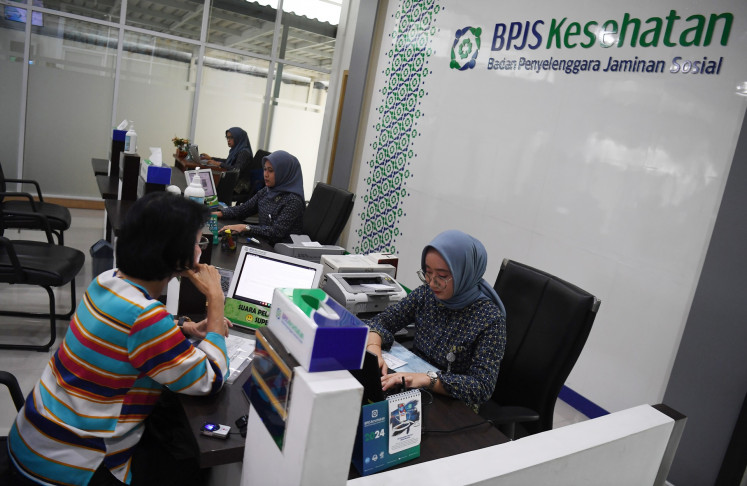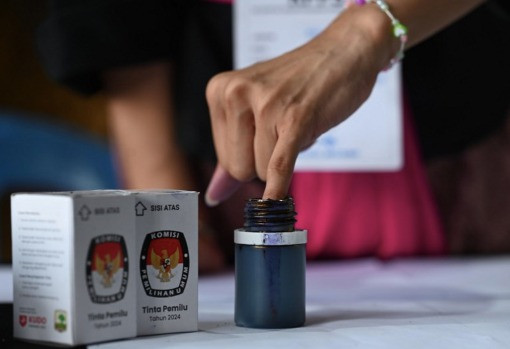AEOI helps catch tax evaders but may deter investors
Indonesia plans to use data from the international Automatic Exchange of Information (AEOI) system to nab tax evaders hiding undeclared income and assets in overseas tax havens
Change Size

I
span>Indonesia plans to use data from the international Automatic Exchange of Information (AEOI) system to nab tax evaders hiding undeclared income and assets in overseas tax havens. But in the process, experts warn, the country may deter much-needed foreign direct investment.
Ninety-eight countries have shared data with Indonesia about the overseas financial accounts of Indonesian residents — citizens and foreigners working in Indonesia who are here for more than 183 days a year or who intend to settle in the country. Included in the list are six territories that are major tax havens for Indonesians — Australia, China, the British Virgin Islands, the Cayman Islands, Hong Kong and Singapore.
The Directorate General of Taxation is still processing the data, according to its spokesman Hestu Yoga Saksama.
The authority is working to identify the beneficial owners of overseas financial accounts. Some accounts may be in one person’s name on paper but in practice benefits another, who is known as the beneficial owner. This process has already taken the tax office at least five months.
By comparing the income declared on tax returns with a person’s account balance, the tax office can determine if they might be guilty of tax evasion.
“That kind of information will be very important to increase taxpayer compliance,” Hestu said in a recent interview with The Jakarta Post. “They understand that [the Directorate General of Taxation] has their data, so they will change their behavior. They will think twice about evading taxes.”
A major challenge in Indonesia’s tax reform is to ensure the crackdown on tax evasion does not deter investors and businesses from investing in Indonesia.
“We need to be more attractive for investment and business, so the tax policy and tax administration should support that,” Hestu said. “This is a big challenge, because, on the other side, we have to collect money and we have a lot of data. But using the data, processing the data should [be done] in a manner that keeps the investment climate conducive for business.”
Indonesia taxes income earned by residents both in Indonesia and overseas in a policy known as worldwide taxation. Kevin O’Rourke, principal of Reformasi Weekly, a political risk analysis firm, explained that the country’s particularly strict tax regime, coupled with the AEOI information-sharing system, could deter foreign direct investment in Indonesia.
He identified “nondomiciled alien residents”, or expatriates in Indonesia on work permits, as one group that could be deterred.
“[The AEOI] renders Indonesia an unattractive place for senior international executives to work, because their income or assets overseas could very well be subject to relatively high rates of taxation,” O’Rourke said.
While Indonesia’s policy of worldwide taxation for all residents has always been in place, the AEOI allows Indonesia to properly enforce the policy.
“The AEOI is a great thing, because it provides transparency and makes it much more difficult for people who owe tax to evade tax wrongfully,” O’Rourke said.
“It is a positive thing, but its advent now means that Indonesian tax officials will be able to know about personal income or personal assets belonging not only to Indonesians who are hiding wealth offshore […] but also about international expats temporarily working in Indonesia,” he said. “With that knowledge, tax officials can impose punitively high taxes on that foreign income or assets.”
Increasing tax compliance is urgently needed in Indonesia. The International Monetary Fund staff on the 2019 Article IV Consultation Mission to Indonesia commented in a recent press release that “revenue mobilization through the modernization of the tax system and tax administration was essential to finance government priorities […]” in Indonesia.
A large informal sector in Indonesia makes it difficult for the government to enforce tax compliance. Last year, Indonesia’s tax ratio, which measures government tax revenue as a percentage of gross domestic product, hovered at 11 percent, one of the lowest in the region.
________________________
— The writer is an intern at The Jakarta Post.









